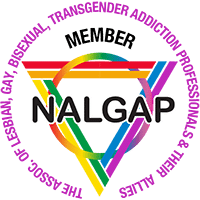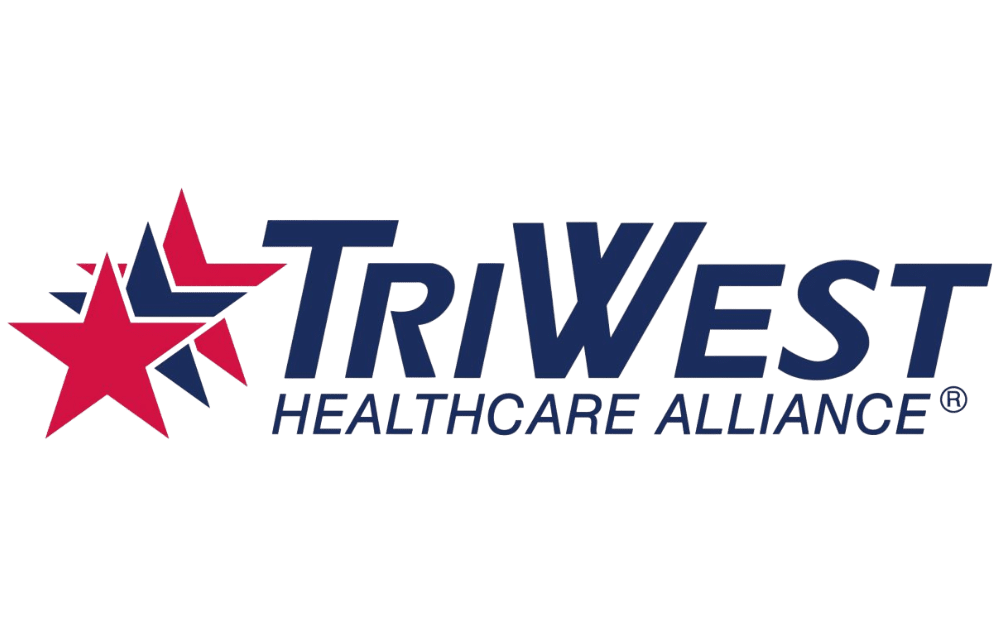Addiction treatment denver
Understanding the Need for Effective Addiction Treatment in Denver
Many individuals in Denver face challenges when seeking addiction treatment due to the complexity and multifaceted nature of substance use disorders. This urban area, with its bustling metropolitan life, offers both unique hurdles and opportunities for those on the path to recovery. The increasing need for effective addiction treatment stems from alarming statistics showing the prevalence of substance use disorders across the city.
Substance abuse touches various demographics, including adolescents, adults, and even families, emphasizing the need for comprehensive treatment approaches. Acknowledging the prevalence of addiction issues, Mile High Recovery Center stands as a beacon of hope, offering a range of services tailored to diverse needs. Its personalized treatment plans accommodate the unique circumstances each individual brings to their journey of recovery.
Innovative Treatment Modalities at Mile High Recovery Center
At the heart of Mile High’s approach is the integration of traditional and experiential therapies. Evidence-based clinical therapies such as Cognitive Behavioral Therapy and Dialectical Behavior Therapy form the foundation of treatment. These modalities are crucial for addressing the psychological aspects of addiction, providing patients with tools to manage their thoughts and behaviors effectively.
To complement these foundational therapies, Mile High incorporates experiential modalities like adventure therapy and equine-assisted therapy. These unique programs foster engagement and personal growth, allowing clients to explore healing in unconventional and impactful ways. This blend of methodologies reflects Mile High’s commitment to providing holistic and adaptive treatment experiences that cater to varied therapeutic needs.
Alumni Support and Community Focus
One of the enduring strengths of Mile High Recovery Center is its vibrant alumni community and ongoing support services. The center recognizes that recovery continues beyond initial treatment, emphasizing the importance of a strong support system. Former clients are actively encouraged to engage with others on their recovery journeys, fostering a culture of shared experiences and mutual encouragement.
This emphasis on community helps sustain long-term sobriety and reintegration into daily life. By maintaining strong ties with alumni, Mile High ensures that support is always available, offering consistent resources and opportunities for growth. This community-driven approach not only aids in preventing relapse but enhances the overall recovery experience by creating a sense of belonging.
The Role of Family in Addiction Recovery
Family involvement is a cornerstone of the recovery process at Mile High Recovery Center. Recognizing the impact of substance use on family dynamics, the center offers family therapy sessions and resources. These sessions are instrumental in healing relationships strained by addiction, providing a safe space for open communication and understanding.
Families are educated on the nature of addiction, equipping them with insights into supportive behaviors and effective communication strategies. By involving family members, Mile High ensures a comprehensive approach to recovery, acknowledging the interconnectedness of personal and familial healing. This inclusive method fosters an environment conducive to long-term success and stability for all involved.
Addressing Co-Occurring Disorders
Mile High Recovery Center takes a nuanced approach to treatment by addressing co-occurring disorders alongside substance use disorders. The presence of mental health conditions, such as anxiety and PTSD, can complicate addiction recovery, requiring specialized interventions. Mile High’s dual-diagnosis services offer comprehensive care, targeting both substance use and mental health needs simultaneously.
By integrating mental health treatment, the center ensures that underlying psychological issues are addressed, reducing the risk of relapse and promoting holistic healing. This integrated treatment model underscores the importance of nuanced care plans tailored to address the full spectrum of an individual’s health. Such comprehensive attention to co-occurring disorders facilitates more sustainable recovery outcomes.
Accessibility and Inclusion in Addiction Treatment
Mile High Recovery Center prides itself on providing inclusive and accessible addiction treatment to the Denver community. Its services are available to a wide range of groups, including the LGBTQ community, military beneficiaries, and insured patients of major carriers. The center verifies insurance coverage and accepts in-network reimbursement, facilitating seamless access to necessary treatments.
The facility’s commitment to inclusivity is evident in its diverse team and culturally competent care practices. By fostering an accepting and supportive environment, Mile High ensures that all clients feel valued and understood, irrespective of their backgrounds. This inclusive approach is vital in encouraging individuals from all walks of life to seek the help they need without fear of judgment or discrimination.
The Housing-to-Treatment Pipeline: A Unique Approach
Mile High Recovery Center offers a distinctive housing-to-treatment pipeline that integrates sober living arrangements with clinical treatment services. This model provides clients with a stable, supportive environment during their recovery journey, bridging the gap between inpatient and outpatient care. The sober living homes offer a structured environment conducive to continued sobriety.
This integrated approach facilitates a smoother transition from intensive treatment to independent living, reducing the risk of relapse by fostering a robust support network. By combining housing and treatment, Mile High supports clients in building a strong foundation for their recovery, emphasizing the importance of stability and community in the healing process.
Evidence-Based Clinical Therapies
Evidence-based clinical therapies are central to Mile High’s treatment philosophy, ensuring that all interventions are grounded in scientific research and proven effectiveness. Therapies like Motivational Enhancement Therapy and EMDR empower clients to process emotional trauma and enhance motivation for change, crucial components of successful addiction treatment.
These therapies are administered by highly trained clinicians who possess both professional expertise and personal recovery experience. This combination offers clients a relatable and credible guide through their therapeutic journey, enhancing trust and openness in the treatment process. Such evidence-based practices form the backbone of Mile High’s commitment to delivering high-quality, effective care.
Urban and Outdoor Therapeutic Activities
Situated in the heart of Denver, Mile High Recovery Center takes advantage of both urban and outdoor settings to enrich its therapeutic offerings. Clients engage in various activities that harness the natural beauty surrounding Denver, embracing adventure therapy as a means of healing. These experiences foster resilience and a renewed sense of self, leveraging the environment as a powerful therapeutic tool.
Urban settings also provide opportunities for social reintegration, helping clients practice newly acquired skills in real-world contexts. By engaging with the community, clients build confidence and independence, preparing for life beyond treatment. This strategic use of location supports Mile High’s emphasis on holistic, community-based recovery solutions, reinforcing the value of diverse therapeutic experiences.
What are common misconceptions about addiction treatment in Denver?
Many people believe that addiction treatment in Denver is solely about detoxification or is limited to traditional therapy methods. However, facilities like Mile High Recovery Center offer a comprehensive approach that includes both evidence-based therapies and experiential healing practices. Another misconception is that treatment is only for those who have hit “rock bottom,” but early intervention can significantly improve recovery outcomes. It’s also worth noting that insurance coverage often makes treatment more accessible than many anticipate. Considering these misconceptions, it’s important to approach treatment with an open mind and ask questions to fully understand the available options.
How does Mile High Recovery Center approach co-occurring disorders?
Mile High Recovery Center recognizes that addiction often intertwines with mental health issues. The center provides dual-diagnosis treatment, which simultaneously addresses substance use disorders and co-occurring mental health conditions like anxiety or PTSD. By integrating mental health support with addiction treatment, Mile High helps patients uncover and treat underlying psychological issues, thereby promoting a more sustainable recovery. It’s a nuanced approach that requires detailed evaluation and personalized care plans to ensure both aspects are treated effectively. This holistic model has been shown to reduce the likelihood of relapse and foster long-term recovery.
What innovative therapies does Mile High utilize?
Mile High Recovery Center leverages both traditional and experiential therapies to cater to diverse recovery needs. Beyond standard Cognitive Behavioral Therapy and Dialectical Behavior Therapy, Mile High offers adventure therapy and equine-assisted therapy. These experiential modalities allow clients to engage with their therapy in more interactive and impactful ways. For instance, adventure therapy can boost self-esteem and resilience through outdoor activities, while equine therapy helps with emotional regulation through the calming presence of horses. By offering a mix of treatments, Mile High provides personalized paths toward healing that are both effective and engaging.
How important is community support in the recovery process?
Community support is often a vital component of successful recovery. At Mile High Recovery Center, the significance of community is highlighted through an active alumni network that encourages ongoing connection and support. Former clients often participate in community events and support groups, creating a circle of encouragement that can be crucial during the recovery journey. This sense of belonging helps mitigate feelings of isolation that many encounter post-treatment, and it provides a stable support system that can be key to maintaining sobriety. Think about it–how much more resilient could recovery be with a supportive community by your side?
What role does family play in addiction recovery?
Family can play a transformative role in the recovery journey. Mile High Recovery Center integrates family therapy into its programs, recognizing that addiction affects not just the individual but their loved ones as well. These therapy sessions are designed to repair strained relationships and promote an understanding of the complexities of addiction. Through open communication, families learn supportive behaviors and effective ways to contribute to their loved ones’ sobriety. By involving family, Mile High amplifies the support system surrounding the individual, which can enhance the likelihood of long-term recovery. Reflect on how involving your family could change your recovery experience.
How does Mile High Recovery Center ensure accessibility and inclusion?
Mile High Recovery Center is deeply committed to making treatment accessible and inclusive. The center provides services to a wide array of groups, including those from the LGBTQ community and military families. By accepting major insurance carriers and verifying coverage for treatments, the center eases the financial burden often associated with seeking help. Additionally, Mile High’s culturally competent care practices and diverse team ensure that all clients feel valued and understood. These efforts help break down barriers to seeking treatment, encouraging individuals from all walks of life to pursue recovery without fear of judgment. Considering this, how might accessibility influence your decision to seek treatment?
Resources
- Substance Abuse and Mental Health Services Administration (SAMHSA) – SAMHSA is a government organization that leads public health efforts to advance the behavioral health of the nation.
- National Institute on Drug Abuse (NIDA) – NIDA is a research institute focused on advancing science on the causes and consequences of drug use and addiction.
- American Psychiatric Association (APA) – The APA is a professional organization representing psychiatrists in the United States, dedicated to ensuring humane care and effective treatment for all persons with mental disorders.
- National Alliance on Mental Illness (NAMI) – NAMI is a grassroots mental health organization dedicated to building better lives for those affected by mental illness.
- Centers for Disease Control and Prevention (CDC) – The CDC is a national public health institute working to protect America from health, safety, and security threats.
















